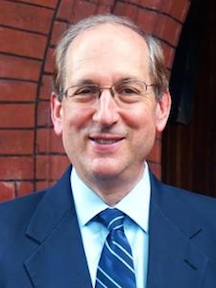Phi Beta Kappa has a unique voice to contribute to conversations that matter today. Founded in 1776, in the midst of uncertainty and division, the Society’s commitment to the common good is inextricably linked with our storied tradition of celebrating deep learning in the arts and sciences and our dedication to the value of liberal education in the lives of individuals and in service to a democratic society. Expressing our values through nonpartisan advocacy that transcends hyperpartisanship, we recently added our voice to two important and ongoing court cases.*
This past spring, we joined an amicus (“friend of the court”) brief filed on behalf of 36 higher education associations in Students for Fair Admissions, Inc. v. Harvard. Our brief took no position on the factual issues regarding alleged discrimination against Asian-American students. Instead, our focus was on core principles that further liberal education: colleges and universities are best equipped to select their entering classes and to determine within broad limits the diversity that will advance their own particular mission rather than relying exclusively on factors such as grades and standardized test scores. In October, the decision of federal Judge Allison Burroughs upheld Harvard’s admission system and relied on reasoning fully consistent with the principles we helped to articulate. As the Harvard litigation is appealed, perhaps all the way to the Supreme Court, we will remain watchful on these issues.
More recently, we joined a brief filed with the Supreme Court in Department of Homeland Security v. Regents of the University of California. This case reviews the administration’s decision to end the DACA policy, which provides temporary legal status and protection from deportation for nearly 800,000 young undocumented immigrants brought to the United States as children. The outcome of this complex case may well determine whether “Dreamers” may continue to live in and contribute their talents to the United States, a position that holds bipartisan and widespread support in national polling. Among those Dreamers are highly accomplished students, at our chapter schools and beyond. As just one example, at Trinity Washington University located in the nation’s capital, for the past two years roughly half of those inducted into Phi Beta Kappa were Dreamers. Our interest in this case is grounded in our historic mission to recognize the most accomplished liberal arts and sciences students in the country, regardless of their backgrounds. This recognition celebrates the benefits their liberal education brings to them, their peers, the educational institutions they attend, and our nation as a whole.
One hundred years ago, ΦΒΚ President Edward Birge eloquently articulated our mission. Our challenge, “both as individuals and as a Society, is to make our faith [in the liberal arts] active and effective in the changing world around us.” What was true in 1776 and 1919 remains true today, perhaps more than ever.
Frederick M. Lawrence
Secretary and CEO
* For a fuller exploration of these themes, please see my recent article in Liberal Education at www.aacu.org/liberaleducation/2019/spring/lawrence.




